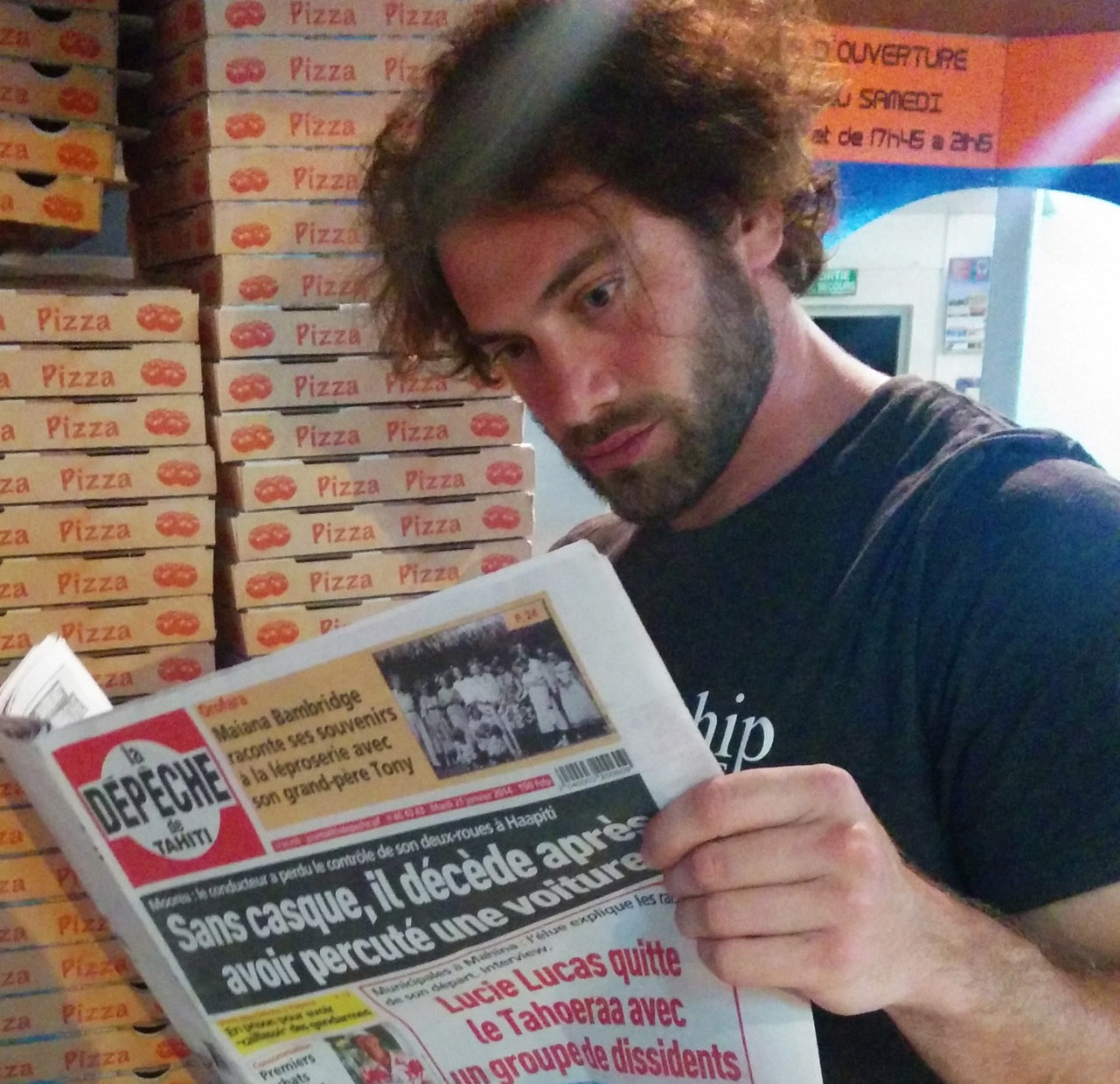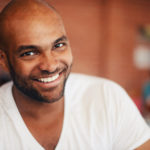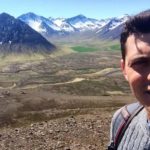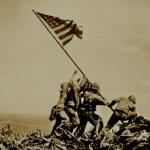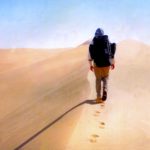Jonathan Yevin is a Bronx-born humor and travel writer best known as the youngest staff writer at Spy Magazine, where he was hired at the age of 17 on the merits of a widely distributed ‘zine he self-published in his teen years. He is also recognized as a pioneer of “no-baggage” travel, having embarked on many voyages around the world with only a passport, money, phone and toothbrush. He has written for Rough Guides, Fodor’s, Frommer’s, Conde Nast Traveler, Outside, Matador Travel, and been profiled by Lonely Planet, Financial Times, U.S. News & World Report, Travel & Leisure, Details and Maxim.
How did you get started traveling?
My folks traveled a lot before I was born, and not a lot after. My mother is a Hungarian immigrant… America by way of Transylvania, Canada and France. My father is a Bronx-born high school teacher who had summers off. They met and married while working on a kibbutz in Israel. The two of them combined speak ten languages. Still, they didn’t exactly encourage independent world travel. In fact, my father was extremely New York-centric and always endorsed the idea that we lived in the capital of the world. That solipsistic concept was and still is promoted in film and television. The first time I took a solo trip to Israel I was 16 and couldn’t believe this remote outpost had all the trappings of modernity, from indoor plumbing to freeways. I mean, up to that point I believed the entire world was a suburb of New York City. Over the next five years I traveled briefly in Europe and the Middle East, but can’t say I really did the hardcore backpacking circuit until after graduating from the Gallatin School at New York University. A professor I admired introduced me to a fellow who lived half the year with a tribe of nomadic hunters in East Africa. The rest of the year he designed and built rooftop gardens in Manhattan. I pestered him to bring me to Africa; he barely acknowledged my existence. Six months later he offered me a gardening apprenticeship. I worked for him for a year, he got me a job with the film festival in Zanzibar; I moved there and didn’t come home for maybe twenty-five or thirty countries. I’ve been traveling half the year every year since.
How did you get started writing?
I attended a well-funded science and technology magnet high school. We had virtual reality, 3D modeling and stereolithography, and all this amazing tech stuff years before the web. I was gearing up for life as a geeky science guy. But when a buddy handed me a Xerox’ed and stapled together ‘zine called “Free Beer Coupon Inside,” I knew a career change was in the works. Before long I had stolen the password for the school copy machines and was running off thousands of copies of my own production, “The Fine Print”. If you met me at that time, and had anything remotely interesting to say, you would soon find yourself on the receiving end of a pitch to write for my ‘zine. After an issue was printed and smuggled off the school premises it was distributed with the fervor of Soviet agitprop.
What do you consider your first “break” as a writer?
I was kicked off a high school trip to Spain for, let’s say, insubordination. So it was the school principal and me, alone in the building for a week. The principal asked me where I would want to work if I could get an internship anywhere. I produced a copy of of Spy Magazine. With it’s tagline “Smart. Funny. Fearless.” it was a natural fit. The managing editor told my principal they did not have positions for high school students, but my principal regaled her with entirely fabricated tales of my prodigiousness and I was granted an interview. The head writers who interviewed me were the funniest people I’d ever met in my life. I don’t know why they offered me a position, since I spent the entire interview laughing so hard my abdominal muscles cramped up. I interned at Spy for six months. On the day the head writers left (to write for David Letterman across town), holding the last few cardboard boxes and bidding all of us adieu at the elevator, one of them pointed to me and said “there’s the future of the magazine.” A few days later the editor-in-chief called me into his office and offered me the position of “college editor” — certainly unaware I had just turned 17 and was still in high school.
As a traveler and fact/story gatherer, what is your biggest challenge on the road?
Well, there’s often a dichotomy between fact gathering and story gathering. So a big challenge is focusing on truth in detail and letting the facts breathe. Once I’ve chosen a subject, there’s a struggle between observing and guiding an emerging narrative. Stories always make sense — unlike our notes, which we read days or months later in front of a computer. We like it when things make sense, have closure, end neatly, are comfortable.
For now I say: a travel writer must always be on guard to never mislead readers with ready-made stereotypes, cliches, and obfuscated relationships between people. Reducing human beings to scenery is a constant temptation. When the observations are fascinating it must be shown and not told. That is an obligation to the readership and an expectation you have as a reader yourself. That trust is fulfilled with ground level reportage and encounters with people who are treated as locals and not exotic aliens.
What is your biggest challenge in the research and writing process?
The biggest challenge with the research is balancing out the mundane fact-gathering obligations of, say, a guidebook or magazine assignment with the persistent desire to do what independent travelers do best: walk around the old city, meditate at a shrine, snap awe-inspiring photos, score prescription drugs over-the-counter, kayak class five whitewater, catch a spy flick at the cinema, etc. The amount of reference information which must be collected to compose Fodor’s Patagonia is simply staggering. During the course of my career, it was greatly facilitated by the advent of the internet. Speaking of, the biggest challenge of the writing process is to not get sucked into the distractifying corners of that same internet. If I moved into a wifi-less cabin with a typewriter fifteen years ago I’d have written more books than Dumas by now. But I live in Brooklyn and keep two spare batteries for my Note 5 just in case there’s a blackout.
What is your biggest challenge from a business standpoint?
As Pico Iyer says in his brilliant TED Talk, it’s important “to remember that sometimes making a living and making a life point in opposite directions.” I’ve long given up on the hope of earning a living exclusively by writing. The creative class has been hollowed out by the advertising-supported give-everything-away-for-free model. That said, I have many talented friends and colleagues who did not hedge their bets. They pushed all the chips into the center of the table, paid their dues and have been rewarded.
Have you ever done other work to make ends meet?
I’ve tried my hand in the world of Hollywood, first as a production assistant and later an assistant director. That wasn’t creative enough for me. I waited tables at one of the biggest restaurants in Times Square. For a while I did focus groups, which met a few times a week and paid a hundred bucks cash a pop. As everyone else ewww’d and awww’d, I was the only one in the room who took a sneak peak at the first camera cellphone and decreed with one hundred percent confidence it was destined to be a complete fail. So I didn’t exactly have my finger on the pulse. Between what little work I could muster and the occasional freelance assignment, I was living a hand-to-mouth existence well into my twenties. Anytime I scrounged airfare I disappeared in the developing world: Africa, South America, Asia. About ten years ago I advertised myself as a landscaper on some Brooklyn real estate blogs and got my own garden design business off the ground. These days that’s what pays the bills around here. It’s a creatively satisfying line of work, financially rewarding, and with the NYC climate gives me at least four months a year it’s too frozen to dig. Then my travel writing kicks into gear, and I can take my time with it because I’m not motivated by the turn of a profit.
What travel authors or books might you recommend and/or have influenced you?
I read Paul Theroux’s Dark Star Safari when I lived in Africa and triangulated that he and I had somehow traveled the same route through western Tanzania, down the length of Malawi, across the Tete corridor of Mozambique and into Zimbabwe… within days of each other. I think I even recognized some of the characters he described in some dingy Malawian border town. When I moved back to NYC I ran into him at a literary function. We exchanged Swahili salutations and contact info, and ultimately I had the chance to tell him about our bizarre overlap. That was gratifying. This year I bumped into him at the Jaipur Literature Festival and we had a good laugh about it all over again. Another big influence has been Hakim Bey (who also goes by the name Peter Lamborn Wilson), who wrote Temporary Autonomous Zone
and Overcoming Tourism. So much of his work floats around the internet without a copyright, and it’s priceless. When I moved to Zanzibar I brought hundreds of pages of double-sided printouts of Hakim Bey’s essays. He appeals to my love of history, my love of radical anarchism, my love of poetry and mysticism.
What advice and/or warnings would you give to someone who is considering going into travel writing?
We all love to travel. As for the writing: do it only if you love it. I’ve been moved by Theroux, Bey, Thubron, Starks, Thesiger, Dalrymple. The list goes on. When I’m moved by something, I want to put myself in its place: the better to understand whatever proved transformative. This interests me as a traveler and as a writer: how do raw materials (experiences, words) become something else, something worth remembering? My taking the same trip as Theroux, reading about his experience, writing about my own, and even laughing about it with him some years later did not solve the alchemical mystery of experiences into words. But in discovering all that could be known about a particular African overland passage, what cannot be known is honored even more. That is the travel writer’s job: we go right up to the edge, and can go no farther.
What is the biggest reward of life as a travel writer?
I suppose the biggest reward is the opportunity to complete yourself all at once, to defy the compartmentalization that occurs when one’s professional life and travel life are divergent. If you’re an IT guy who commutes downtown your idea of travel will be a severely well-planned vacation. Being a travel writer means crossing the beams. As a career, it’s a risky proposition. But so what? People take risks for the most spiritually inconsequential things, like jaywalking and asking someone out for a date. Why not take a risk when your personal development is at stake? Travel writers have a fierce desire to complete themselves, often propelled by a fear of loneliness or a desire to leave a mark on the world. I’ve learned so much about myself in the furthest reaches of planet Earth, wondering what the hell I was doing there. I’ve been scammed, pickpocketed, robbed, shot at. I’ve been burned many times, trusting people I shouldn’t have, blowing my money and generally getting in over my head. I’ve also known the sublime feeling of checking out of comped suites at five-star hotels and hopping to my next destination on a ten peso guey-guey. I’ve had my work honored with bylines, interviews, and impassioned letters to the editor… and watched those ego validations lose their allure over time. It’s satisfied my curiosity about the outside world and my own inner nature simultaneously.

